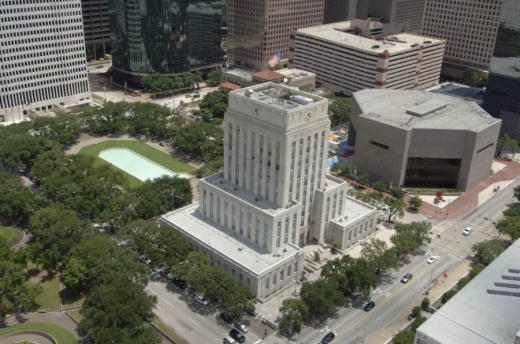The funding, as allocated by the federal Coronavirus Aid, Relief, Economic Security Act, can only be used on expenses that were not previously budgeted, Mayor Sylvester Turner said.
A rental assistance program for Houston residents struggling from wage losses due to the coronavirus pandemic is one of the first spending priorities, Turner told council members. He said an assistance program was proposed to go before City Council on May 6. All expenditures of the funding will need City Council approval, Turner said.
Area labor union representatives have been advocating for such efforts since early in the pandemic.
“I know our members want to pay rent and put food on the table, but they’re having to make hard decisions,” said Jennifer Hernandez, president of International Union of Painters and Allied Trades, District 88.
A statewide eviction ban is in effect until May 18.
The city also plans to use the funds for new coronavirus testing sites and hiring contact tracers to assist in mitigating community spread of the virus’s infections. Harris County announced a similar effort, which County Judge Lina Hidalgo said is particularly urgent as statewide business and restaurant restrictions begin to ease.
“The number one item for the city will be testing,” Turner said. “We need more contact tracing and that is a very labor intensive effort. ... That is going to be a major, major item.”
The funding cannot be used to fill the budgetary gap the city faces ahead of fiscal year 2020-21 beginning in June, which could range anywhere from $170 million to $300 million, according to current projections. Factoring in stay-home orders in March, the city financial department projected a $23 million reduction in year-end sales tax revenue, according to April financial reports.
Unbudgeted expenses include testing and sanitation efforts; leases on hotel rooms for quarantine sites; and unanticipated police, fire and other municipal department overtime related to coronavirus efforts, Turner said.
Houston’s recently appointed recovery czar, Marvin Odum, is in charge of budgeting the use of the CARES Act funds.
Turner said he, Odum and staff are working with federal representatives to allow more flexibility in the spending allowed by the act so that the city can ease the impending burden on the fiscal year 2020-21 budget, in which early drafts already call for deferred police cadet classes and other municipal layoffs.
As written, Turner said the act better applies to cities with more deaths and hospital capacity issues, such as New York City, because it can be used to supplement temporary medical shelter expenses.
The county’s allocation of funds, which is separate from the city’s, can go toward the temporary medical shelter built at NRG Stadium, Hidalgo said when she announced its construction.
Editor's note: this post has been updated for clarity.





